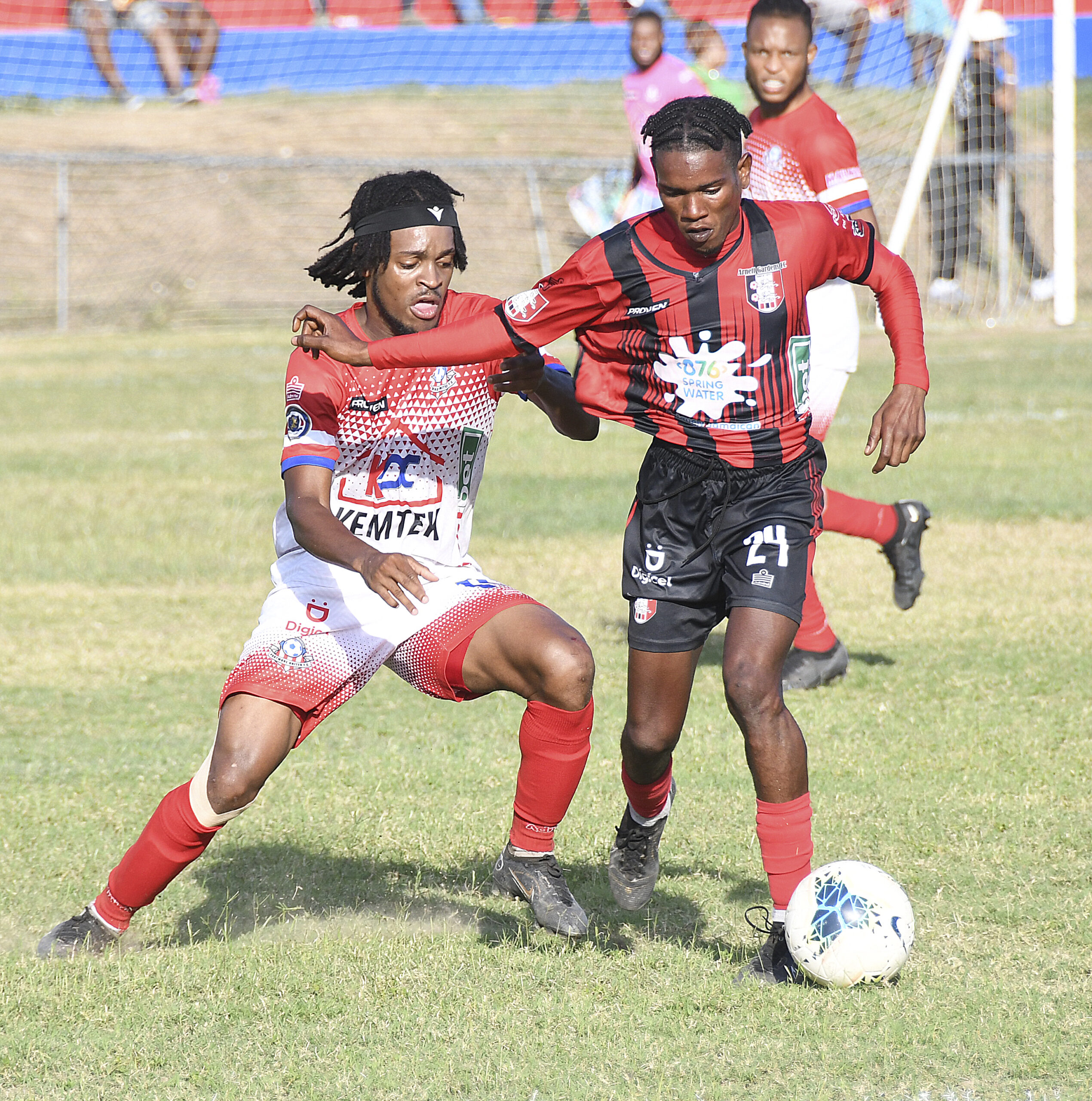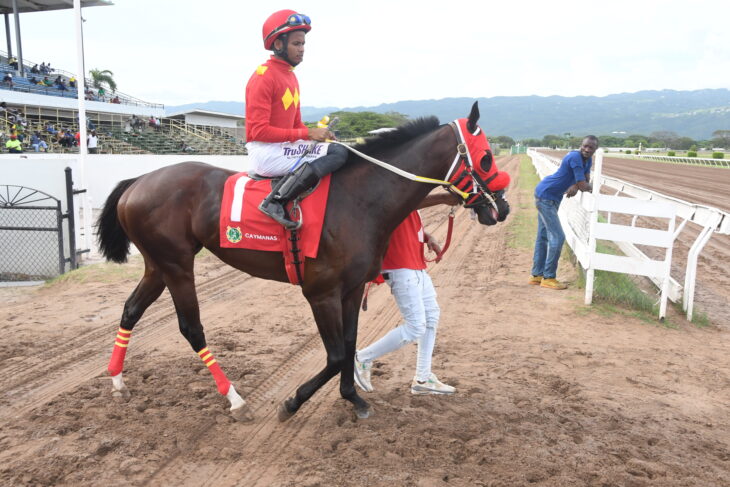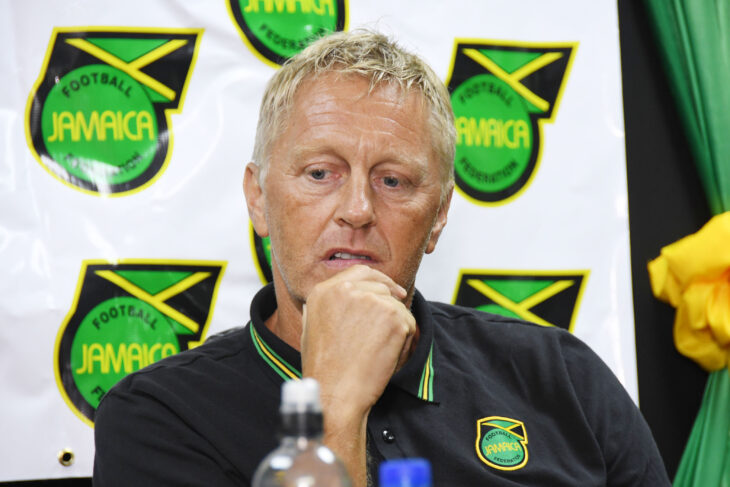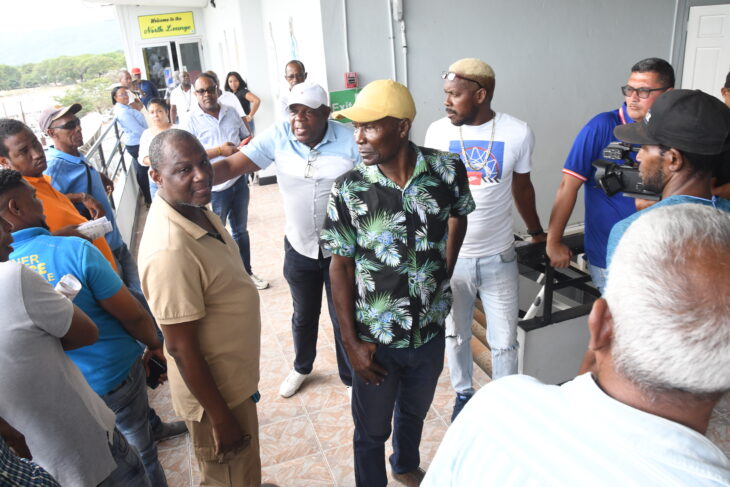
My recent visit to the FIFA Women’s Under 20 World Cup qualifiers in Dominican Republic helped me to clarify some thoughts on Jamaica’s football.
As with most of our recent youth teams, the JFF’s precarious financial position does not allow us long-term preparation, so we quickly assemble teams to compete in these events but are not really able to give long-term support in their programmes, as do our North American and Central American top teams.
A senior coach suggests that the JFF should reconsider a more realistic, financially viable, technical programme, focusing on achieving an acceptable CFU /CONCACAF level of preparation, before spending these unaffordable large sums on international competitions, sending teams to participate rather than to achieve.
These under 20 girls seemed physically unprepared for their first game, against Canada, as even with the heat and the humidity, the Canadians were running stronger and faster towards the end of their 4-0 victory.
Our Jamaican girls bounced back in the second game and we would be proud of their effort as they gave it their all, despite again coming up 0-5 losers — both loses to older and much better teams.
Instructive to note that less than a third of our squad were internationally competitive at this level, which again reignites the discussions about local versus overseas players and our team/squad selection.
The positive vibes and improvement in every game in this tournament saw us convincingly beating Panama 4-1 in the final game and laying claim to probably being the best unit in this female age group category, in the Caribbean.
This is a Caribbean problem. FIFA/CONCACAF have set a good competition framework — U-15, U-17, U-20 — and offered some financing.
To move from, being an event to having a proper sustained programme requires massive funding and those discussions should be led by the Caribbean Football Union and the JFF.
FIFA’s vision and instructions for the female game are pointless without proper financing and only Cavalier FC have led the way, as a premier League team, in practical and technical support to the female game.
The same is true for our entire youth development structure in the Caribbean.
FIFA is more comfortable with a professional structure and therefore has historically recognized clubs only, as the drivers for development.
Jamaica’s system therefore has always been inverted, as it is schoolboy football which has historically been football’s foundation.
Again, a national discussion about the inter-relationship between schoolboy football, academies and club football with a focus on a progressive national development structure, beckons. Dacosta Cup, the most popular rurally, and the Manning cup, in our metropolis, jointly are the engine for the development of the JFF’s youth programme.
Schools naturally embody all the development facilities necessary — fields and infrastructure, school bus, coaching staff, past students financial support — and the dynamism of an inherently loyal fan base.
Our parish and club system lack most of these, so cannot compete.
Added to this, most of our best parish/ club, technical and administrative personnel are integrally involved in schoolboy football, with the financial benefits offered by most schools far outweighing the little or no remuneration that parishes/clubs can offer!
No wonder that FIFA, from their lofty perch in Zurich, in analysing the structured way forward for Jamaica’s football have seen very little relevance in parish affiliates and have recommended that Jamaica — if we are to compete internationally — must adopt a professional club structure and promote regional administrative structures (previously called confederations), instead of parishes.
Most rural parishes seem unaware of this
Simply put, FIFA encourages the JFF moves in the direction of having our football structured with the collaborative efforts of usually three to four neighbouring parishes (previously called confederations), if we are to maximize our talent and scarce financial resources.
FIFA’s recommendations, some 4 years ago, were for a working JFF with more power/ responsibility given to regional/confederation chairman with assigned portfolios and geographical spread. i.e the JFF would function island wide, not only in Kingston.
Logic, without an understanding of the politics and culture of the Caribbean, was doomed to failure and the JFF have eventually decided on a technical path which increases the number of teams in our professional league, thereby endorsing quantity over quality, supporting the wishes of our parishes by which they hope to compete to prove their relevance in the National Premier League.
Nationally, we have not reached the football maturity to accept the concept of feeder teams.
A recent Jamaica premier League chairman has publicly lamented the folly of attempting to finance this future expanded premier League.
Our Tier-11 teams are similarly blessed with expansion WITHOUT structured financing and may eventually face the fate of the A league of old, unless a financial miracle intervenes. The percentage of the top two promoted teams being relegated by the following season is high, as tier II does not force these teams to replicate the technical or financial criteria forced on the Premier League teams.
The much-maligned World Cup in Qatar has realised unparalleled profit, which gives FIFA the opportunity to finance each of its affiliates to the tune of an additional US$2 million.
This has left some administrators salivating over this surplus.
For the first time in our history, football will have the “backative” to offer budgetary support in financing and developing our “beautiful game”. Most of this money has to go towards the support of our many national teams. This is an opportunity, however, for a chunk of this money to be directed to the base of our sport i.e amateur football, the clubs and our parishes.
The much criticized “politics of football” could actually be our saviour, if we could find a credible candidate and platform to insist on a practical proposal;
Minimum of $1 million to all parish affiliates, primarily to be used in developing their administration and youth football programme.
-$1 million to each tier two club,
-$250,000 to each amateur club.
In addition, our adidas sponsorship, quite correctly, is geared towards our national teams. We need to, however, have further discussions with adidas as this relates to our clubs, in particular bulk discounted price/grants to each club for footwear, footballs and specific items in our national development programmes, inclusive referees.
It should be a two-way discussion which also recognizes the need for the entire country to support brand adidas if they are supporting brand Jamaica!
Nothing comes for free!!
This would revitalize club /parish football and hopefully remove the apathy and reignite the passion of most of our struggling clubs, who wish to follow the various mandates but just can’t afford to.
If government would also “chip in” with five acres of suitable government land in their community, for each Premier League team that do not have a field, then we could really talk about a national effort, embracing the private sector in developing our national sport.
If we are serious that the clubs must be the vehicle/driver of development, then we should recognise that a paradigm shift is necessary in the redistribution of football’s finances.
Rural parishes should then be supporting a candidate that delivers this FIFA surplus directly to its clubs and parishes, unhindered.



